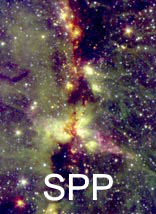| Export Compliance: Smithsonian Institution Commitment to Compliance with Export Control Requirements | ||
|
U.S. export controls exist to protect the Nation's security and foreign policy interests. The Smithsonian Institution is committed to complying with all U.S. laws and regulations applicable to the Smithsonian's shipment, transmission or transfer of regulated items, information and software to foreign countries, persons or entities. A new Smithsonian Directive, SD 611, "Export Compliance and Trade Sanctions Related To Research, Export and Museum Activities," is forthcoming and a comprehensive export compliance program is being implemented to build awareness and understanding about export compliance and to ensure that all of the Smithsonian's international activities (including collaborations with, or the hiring of foreign persons and institutions, purchasing and shipping) are vetted for compliance with U.S. laws. Below are some common areas where export control issues may arise around the Smithsonian: Shipping Materials OverseasThe export of items, information or software may require an export license from the U.S. government depending on what is being shipped, where it is going and to whom it is being exported or disclosed. To illustrate, a license is required to export to foreign countries certain historic military or space items that qualify as strategic dual use or defense hardware, materials, technology or software. Travelling To, Collaborating With, Hosting Colleagues from, or Purchasing Items from Countries with Comprehensive Embargoes or Trade Sanctions.Certain organizations, individuals and countries are subject to trade sanctions, embargoes and other restrictions under U.S. law. These restrictions can be comprehensive or targeted in nature. Comprehensive embargoes prohibit virtually all exports, imports and other transactions without a license or other U.S. government authorization. Targeted sanctions prohibit the trade of specified goods, technologies, and services with specific organizations (including foreign governments and persons). All individuals who participate in Smithsonian activities (including collaborators, interns, fellows, banks, freight forwarders, brokers, purchasing agents, end-users and payment facilitators) from sanctioned countries must be screened against the Specially Designated Nationals (SDN) list maintained by the Department of the Treasury to be sure that the Smithsonian does not work with the "blocked" parties identified on this list. Countries that currently have comprehensive embargoes or targeted trade sanctions include: Afghanistan, Balkans, Belarus, Colombia, Congo, Cuba, Democratic Republic of the Congo, Iran, Iraq, Ivory Coast, Lebanon, Liberia, Mexico, North Korea, Russia, Somalia, Sudan, Syria, Ukraine and Zimbabwe. To ensure Smithsonian compliance with all export licensing and party screening requirements under these laws, please advise the Export Compliance Officer, Natascha Finnerty (export@si) before carrying, shipping or otherwise sending materials or technical information outside the country OR before engaging in any programs or activities with the sanctioned countries listed above. This message is sent on the behalf of Albert Horvath, September 16, 2014
If you have further questions, please contact the Export Compliance Officer. | ||




